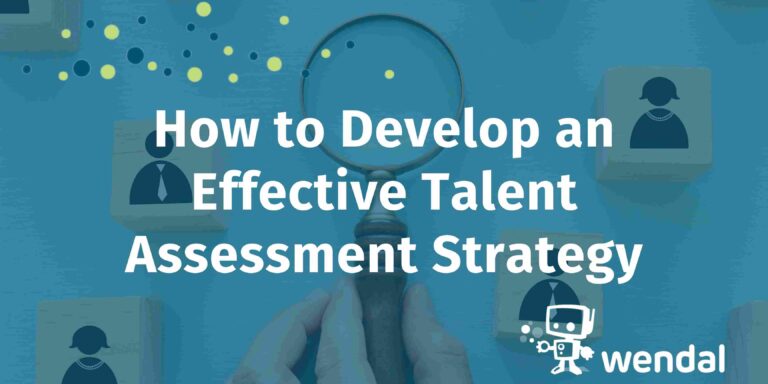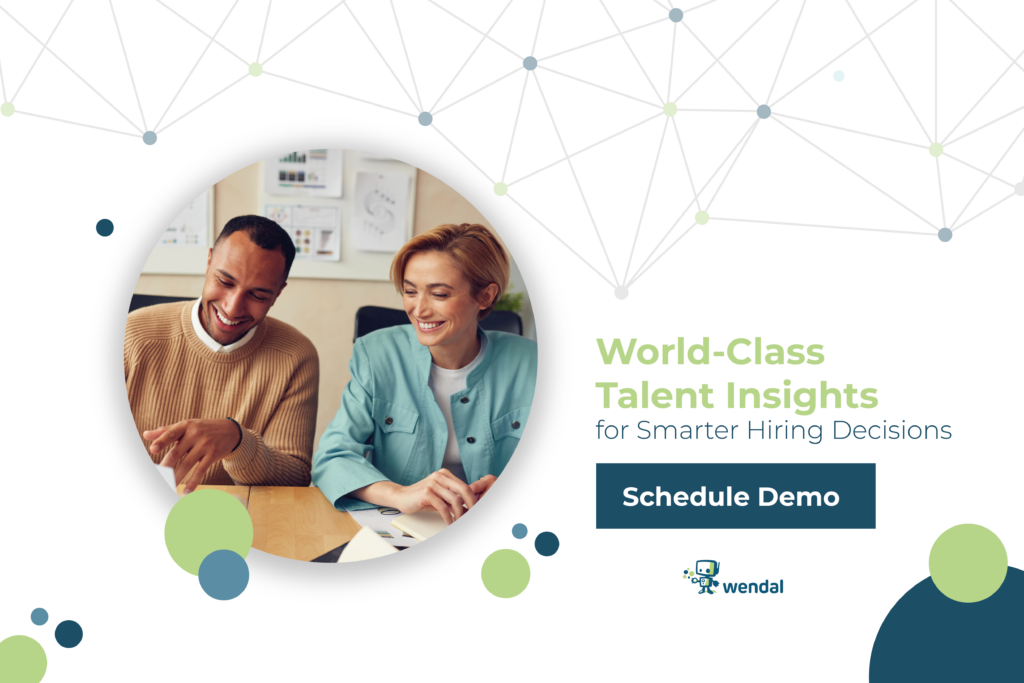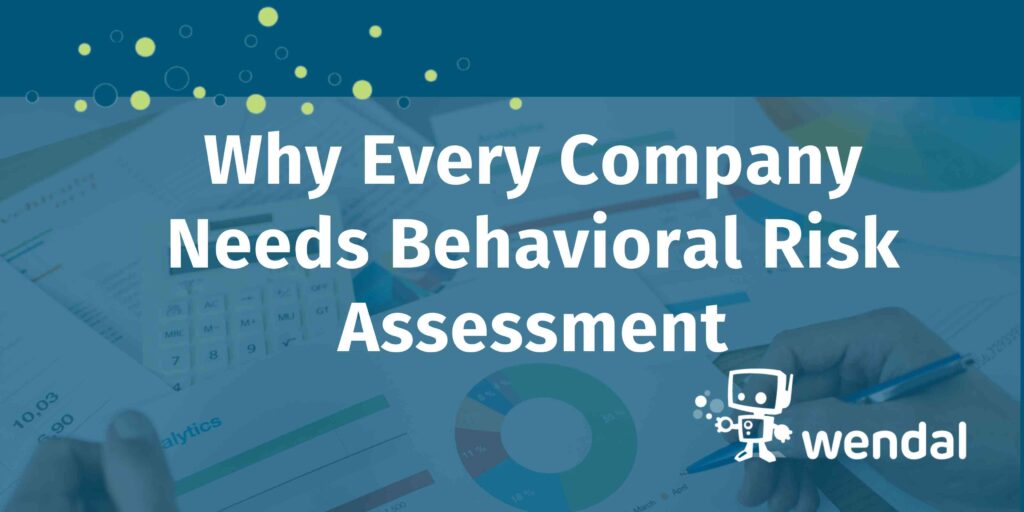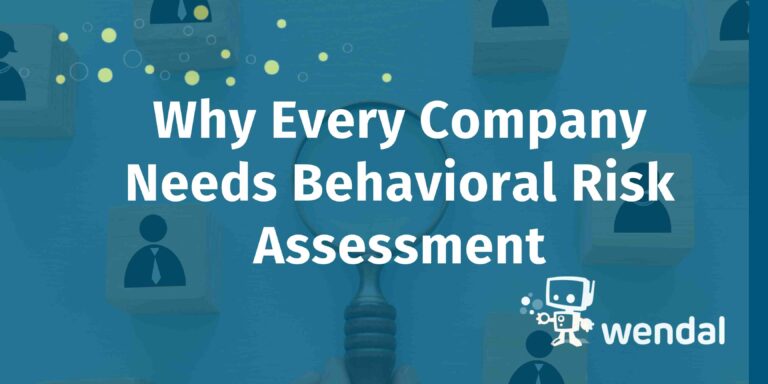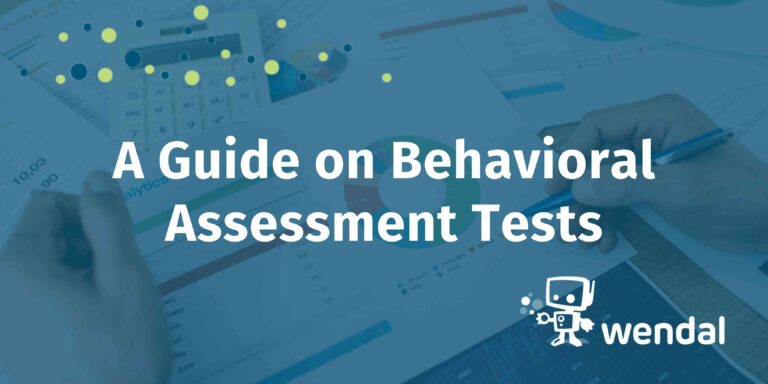Developing an Effective Talent Assessment Strategy
Hiring the right people is crucial to the success of any organization. The ability to identify, select and hire top talent is a key factor that separates high-performing companies from their competition. But how can organizations ensure that they’re making the right hiring decisions? The answer lies in developing an effective talent assessment strategy.
At Wendal® Talent Insights, we understand the importance of a winning talent assessment strategy. In this comprehensive guide, we will explore the key components of developing an effective talent assessment strategy, so your organization can identify and select the best-fit talent.
Benefits of Developing a Talent Assessment Strategy
The benefits of having a talent assessment strategy are many. Organizations that adopt a consistent, data-driven approach to hiring can expect:
Improved hiring outcomes
An effective talent assessment strategy can increase the likelihood of hiring high-performing individuals who are the right fit for your organization by providing a structured and objective process for evaluating candidates.
Reduced turnover
An effective talent assessment strategy can help to identify individuals with the potential to have a long and productive career in your organization, reducing turnover and associated costs.
Cost savings
Reducing turnover and ensuring that you’re hiring the right people can result in significant cost savings in the form of reduced recruitment and training costs.
Improved workforce diversity
An effective talent assessment strategy can reduce the impact of personal biases, increasing the likelihood of hiring a diverse workforce.
Key Considerations When Developing a Talent Assessment Strategy
Developing a talent assessment strategy involves a range of considerations, including:
Defining competencies and attributes: To ensure that you are evaluating candidates on the right qualities and attributes, it is important to develop a clear understanding of the competencies and attributes that are necessary for success in each role.
Identifying the most effective assessment methods: There are a variety of assessment methods available, ranging from interviews to psychometric tests. It is important to select the assessment methods that are most appropriate for your organization and the role you’re trying to fill.
Collecting and analyzing data: An effective talent assessment strategy involves collecting and analyzing data on candidate performance, using objective, standardized metrics to compare candidates and track progress over time.
Common Challenges and Best Practices
Overcoming biases in assessment
Personal biases can have a significant impact on the assessment process, leading to errors and poor hiring decisions. An effective talent assessment strategy involves identifying and mitigating the impact of personal biases, using objective and standardized metrics.
Ensuring assessment validity and reliability
It’s important to ensure that the assessments you use are reliable and valid, by investing in high-quality assessments, conducting regular audits and reviews, and developing benchmark scores for comparison.
Ensuring alignment with organizational goals
An effective talent assessment strategy takes into account the specific goals and needs of your organization, ensuring that you’re evaluating candidates on the attributes that are most important for success in your unique context.
Encouraging transparency and feedback
Building open, transparent and honest communication channels into your assessment process can help to encourage feedback and improve the candidate experience. This can help to create a positive brand image, encourage referrals, and strengthen candidate engagement.
Next Steps: Implementing Your Talent Assessment Strategy
Getting buy-in from stakeholders
Implementing an effective talent assessment strategy requires buy-in from a range of stakeholders, including senior leaders, HR, hiring managers, and employees. It’s important to educate stakeholders on the benefits of a data-driven approach to hiring, and to build support networks to encourage adoption.
Ensuring successful implementation and adoption
Developing an effective talent assessment strategy is only the first step – ensuring successful implementation requires a structured and comprehensive plan that includes training, support, and regular reviews.
Measuring and improving the effectiveness of your strategy
To ensure that your talent assessment strategy is delivering the outcomes you desire, it’s important to measure and track its effectiveness over time, using metrics like time-to-hire, quality-of-hire, and retention rate.
Conclusion
Developing an effective talent assessment strategy is critical for the long-term success of any organization. By identifying, selecting, and hiring top talent, organizations can build high-performing teams, reduce turnover, and improve workforce diversity. At Wendal® Talent Insights, we offer world-class, tailored talent assessment solutions to help organizations develop smarter hiring strategies and make data-driven decisions. Contact us today to learn more about how we can help transform your hiring process and build better teams.
Talent Assessment Strategy FAQs
Q: How can talent assessment strategies help my organization make smarter hiring decisions?
A: Talent assessment strategies provide objective and data-driven insights into candidates’ skills, competencies, and fit for the organization. By using assessments such as interviews, psychometric tests, and simulations, organizations can make more informed and accurate hiring decisions, leading to the selection of top performers and reducing the risk of bad hires.
Q: What are the benefits of using talent assessments in the hiring process?
A: Talent assessments offer a range of benefits, including improved hiring outcomes, reduced turnover, cost savings, and improved workforce diversity. By using assessments, organizations can identify high-potential candidates, decrease turnover rates, save resources on recruitment and training costs, and foster a more inclusive and diverse workforce.
Q: How do talent assessments help in identifying and developing future leaders?
A: Talent assessments provide valuable insights into employees’ potential and readiness to take on leadership roles. By assessing competencies, behaviors, and leadership qualities, organizations can identify high-potential individuals, provide targeted development opportunities, and create succession plans to groom future leaders.
Q: How can data be leveraged in talent assessments?
A: Data plays a crucial role in talent assessments. By collecting and analyzing data on candidate performance, organizations can make evidence-based decisions, measure the effectiveness of their assessment strategy, and identify trends or patterns that can inform future talent management initiatives. Data-driven talent assessments help remove biases and increase the validity and reliability of the selection process.
Q: How can Wendal® Talent Insights help implement an effective talent assessment strategy?
A: Wendal® Talent Insights offers world-class, tailored talent assessment solutions that empower organizations to develop and implement effective talent assessment strategies. With our advanced analytics, psychometric assessments, and expert guidance, organizations can gain valuable insights into candidates’ potential, make better hiring decisions, and build high-performing teams that drive organizational success. Wendal® is your partner in making smarter talent assessment decisions.

